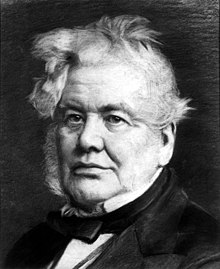Isaac Butt | |
|---|---|
 Isaac Butt, portrait by John Butler Yeats | |
| 1st Leader of the Home Rule League | |
| In office 21 November 1873 – 5 May 1879 | |
| Succeeded by | William Shaw |
| Member of Parliament for Limerick | |
| In office 1871–1879 | |
| Preceded by | Francis William Russell George Gavin |
| Succeeded by | Daniel Fitzgerald Gabbett Richard O'Shaughnessy |
| Member of Parliament for Youghal | |
| In office 1852–1865 | |
| Preceded by | Thomas Chisholm Anstey |
| Succeeded by | Joseph Neale McKenna |
| Personal details | |
| Born | 6 September 1813 Glenfin, County Donegal, United Kingdom of Great Britain and Ireland |
| Died | 5 May 1879 (aged 65) Clonskeagh, Dublin, United Kingdom of Great Britain and Ireland |
| Political party | Home Rule League (from 1873) |
| Other political affiliations | Home Government Association (1870–73) Irish Conservative Party (until 1870) |
| Alma mater | Trinity College Dublin |
| Occupation | Professor, lawyer, politician, and Queen's Counsel |
Isaac Butt QC MP (6 September 1813 – 5 May 1879) was an Irish barrister, editor, politician, Member of Parliament in the House of Commons of the United Kingdom, economist and the founder and first leader of a number of Irish nationalist parties and organisations. He was a leader in the Irish Metropolitan Conservative Society in 1836, the Home Government Association in 1870, and the Home Rule League in 1873. Colin W. Reid argues that Home Rule was the mechanism Butt proposed to bind Ireland to Great Britain. It would end the ambiguities of the Act of Union of 1800. He portrayed a federalised United Kingdom, which would have weakened Irish exceptionalism within a broader British context. Butt was representative of a constructive national unionism.[1] As an economist, he made significant contributions regarding the potential resource mobilisation and distribution aspects of protection, and analysed deficiencies in the Irish economy such as sparse employment, low productivity, and misallocation of land.[2] He dissented from the established Ricardian theories and favoured some welfare state concepts.[3] As editor he made the Dublin University Magazine a leading Irish journal of politics and literature.[4]
- ^ Colin W. Reid, "‘An Experiment in Constructive Unionism’: Isaac Butt, Home Rule and Federalist Political Thought during the 1870s." English Historical Review 129.537 (2014): 332-361.
- ^ Alan O’Day, "Isaac Butt and Neglected Political Economists." in English, Irish and Subversives Among the Dismal Scientists (2010): 375+.
- ^ R.D. Collison Black, "The Irish dissenters and nineteenth-century political economy." Hermathena 135 (1983): 120-137. online
- ^ Wayne E. Hall, "The 'Dublin University Magazine' and Isaac Butt, 1834-1838." Victorian Periodicals Review 20.2 (1987): 43-56.